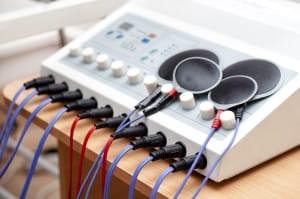Post-traumatic stress disorder (PTSD) is a serious and complex anxiety disorder that can affect anyone who experiences or even witnesses a traumatizing event. Major depressive disorder (MDD) is exactly what it sounds like – more than mild depression, it is long-term depression that interferes with a person’s ability to carry on a normal life. When the two conditions appear together, as they often do, the combination can be life-altering for the patient. Looking for the most effective way to treat the comorbid (existing together) conditions is a high priority. A new, retroactive study suggests that the best results may come when patients receive electroconvulsive therapy (ECT). Investigators in the recent study looked at data from the U.S. Department of Veterans Affairs medical records for 22,164 patients. Of those patients, 18,679 had neither PTSD nor MDD, while 3,485 suffered from both. Of the number who had both conditions, just 92 received ECT. The 92 patients given ECT received 6.5 treatments on average, at 250 percent above the level needed to induce seizure. The patients were given a muscle relaxant and light anesthesia during the procedure. Investigators took a look at patient records before treatment, at the time of treatment and then eight years out from the time of treatment. Health outcomes and death rates were the primary areas of comparison between groups. Here is some of what was learned:
- Among patients with neither PTSD nor MDD, the death rate was 6 percent
- Among patients with PTSD and MDD but no ECT, the death rate was 18 percent
- Among patients with PTSD plus MDD who received ECT, the death rate was 9.7 percent
In short, among patients with PTSD plus MDD, those who received ECT enjoyed a significantly higher survival rate compared with those who did not. There were other benefits as well. ECT lowered patients’ risk for suicide and death from heart disease. One explanation for the positive heart health outcome has to do with the anti-inflammatory effects gained from ECT. Elevated inflammation markers are linked to both conditions (PTSD, MDD) and so receiving a treatment that lowers inflammation could have a protective effect. To put the results in perspective, statin treatments usually lower risk of cardiovascular mortality by 20 to 30 percent, whereas ECT lowered that risk by 44 percent. Close to one half of all PTSD patients experience MDD as well. Both conditions can predict negative health outcomes, but ECT appears to reduce those negative outcomes even eight years later. The Diagnostic and Statistical Manual of Mental Health lists ECT as a first-line treatment option. This study indicates that it could be used to good effect more often than it is.

